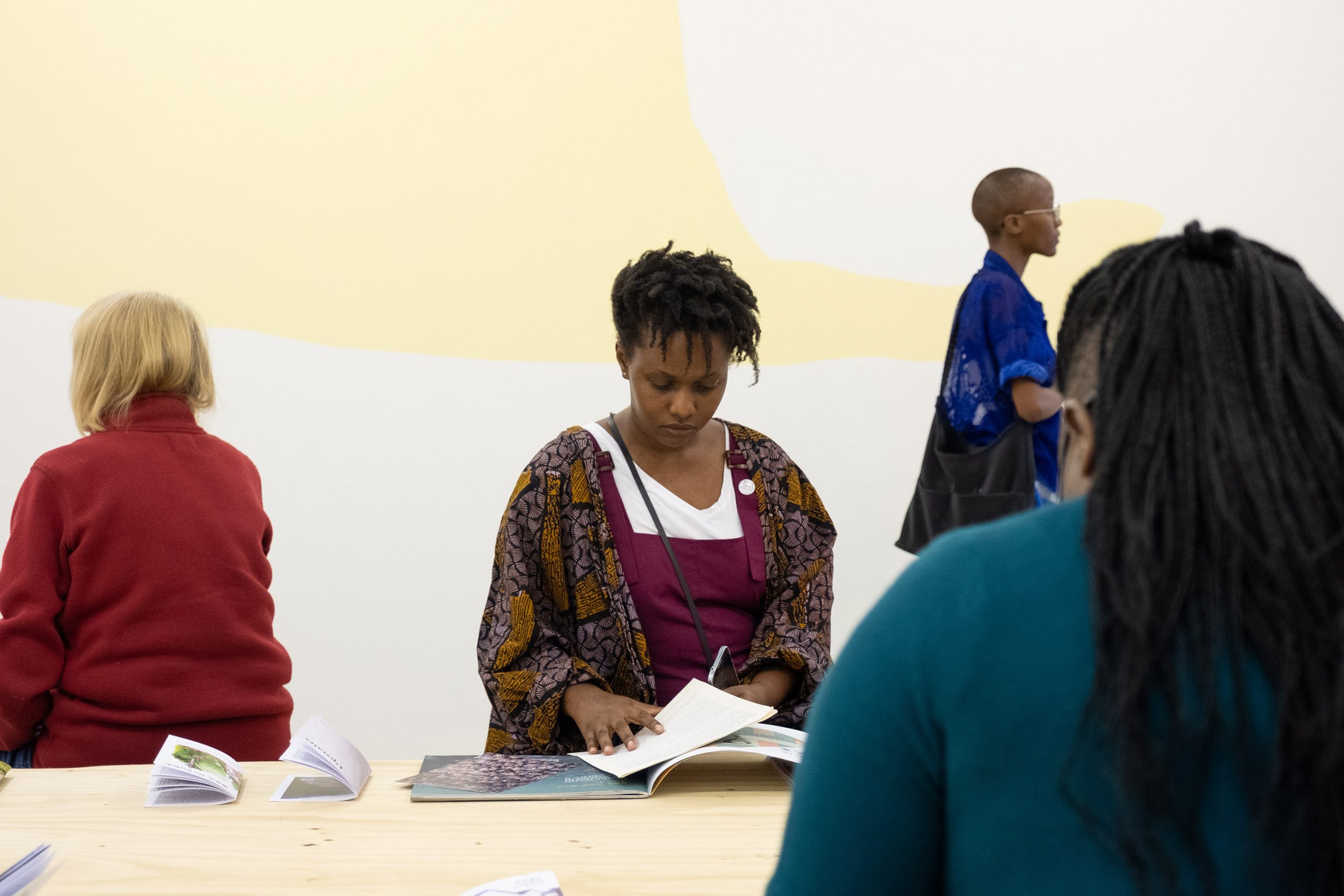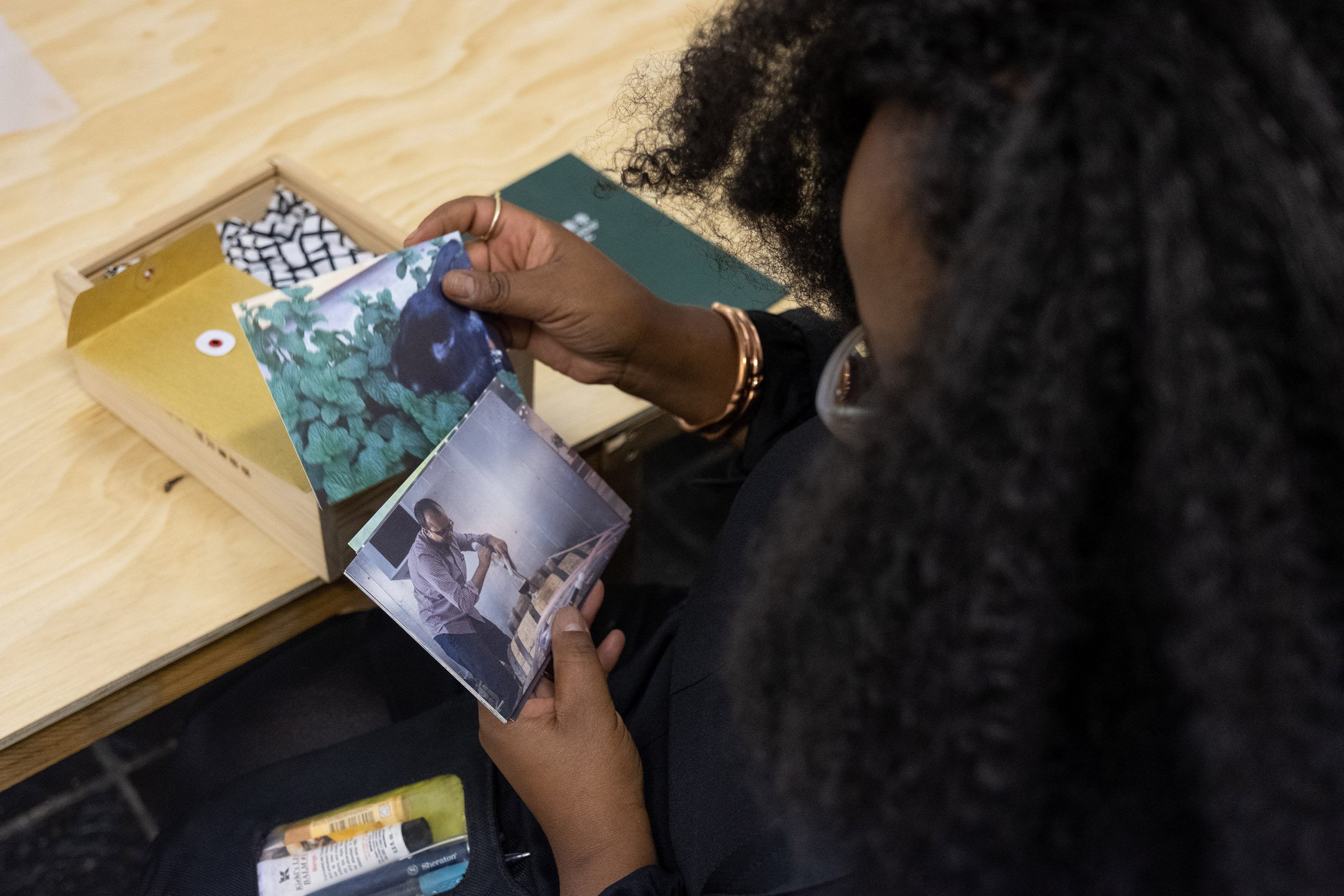The text that is to follow- is the continuation of a conversation and speculations from a place of suspension, on the current and possible future implications of COVID-19 within South Africa’s creative and artistic industries with Molemo Moiloa and Nare Mokgotho of MADEYOULOOK. In the text that precedes it, titled Weighted suspension // conversations and speculations on Creative Industries and COVID-19, I speak to Cape Town based independent curator, designer and creative practitioner- Daniel Rautenbach who is currently working at Norval Foundation.
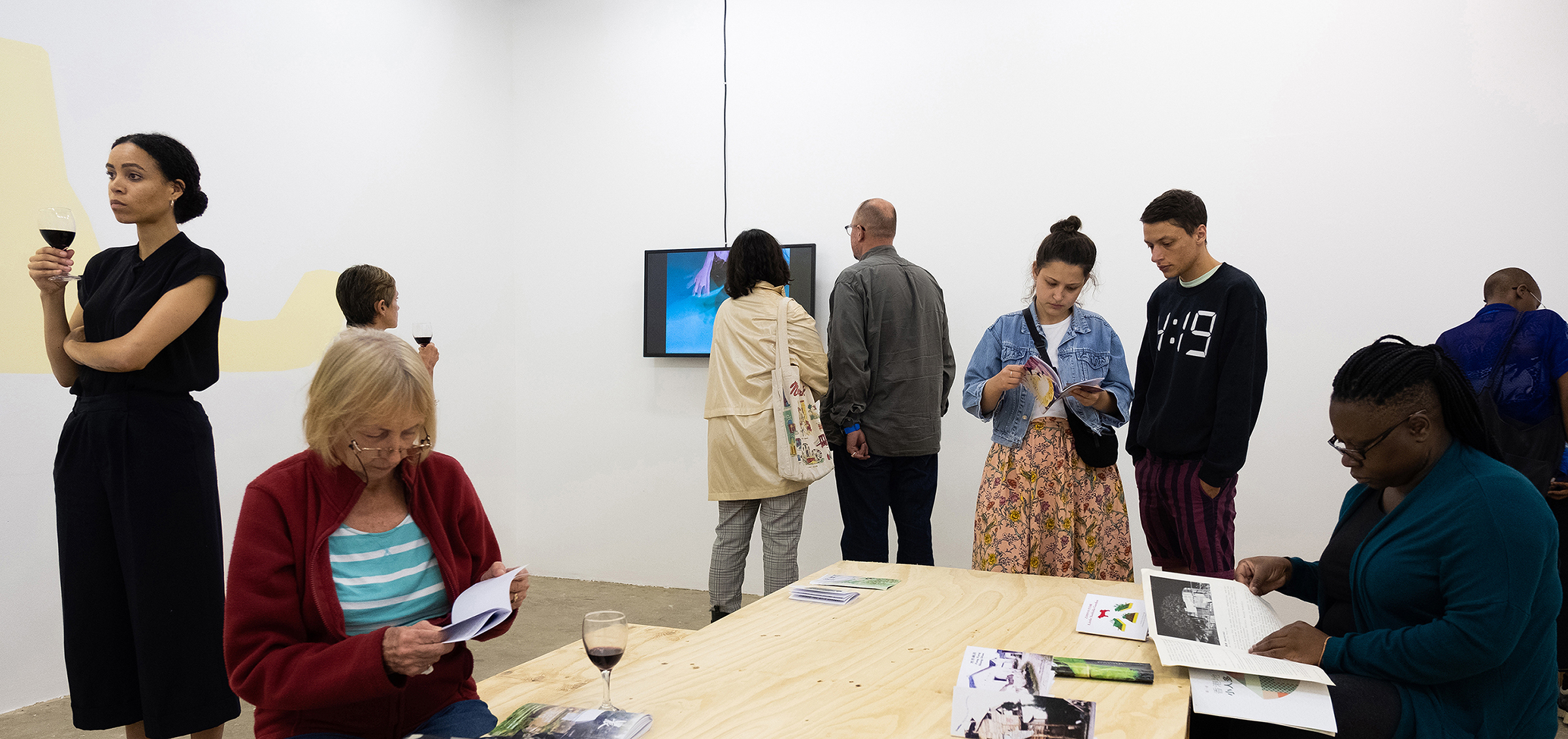
***
LM: MYL, as an artistic collaborative – and with regards to its praxis and methods – engages and is rooted in systems of sociality. Furthermore, speaking to discourses and questions of publics and audiences. This to me implies forms of, or interactions of embodied presence or physicality. However, in this suspended moment within creative industries and economies due to the outbreak of coronavirus and how it has brought social life at a halt, what innovations have you begun to — even on a purely speculative level — imagine as creative strategies to address this?
Molemo Moiloa: So I should begin by saying that my response are entirely provisional. There is a good chance they change as things become clearer – currently too much is different to be sure of anything. I should also say, that the slight existential angst that this global – and super local – situation encourages is definitely colouring my answers. Hopefully it won’t remain this way…
We started discussing this a bit – that our project attempts to reclaim forms of sociality that are invisibilised, endangered, and under pressure from the realities of what it means to be black, low-income, under-historicised etc. Whether its preaching on trains, or loving on corners or claiming our oral histories – our work has centred on claiming space for the enunciations of embodied black knowledge in all its social glory. And now, we find ourselves in this moment where sociality is dangerous. And we see the state responding in ways that seem to imply that black, low-income sociality in particular is dangerous. You see this in the high presence of military in townships, Cele’s war on alcohol that has deeply classist undertones, the secondary response to the needs of the informally and under employed in stimulus packages etc. So our work seems ever as urgent as before. And somehow, it feels essential to remain rooted and committed, therefore- to sociality in its embodied and public form.
Nare Mokgotho: This said, I think that there are also numerous forms of sociality and discursive strategies at play in the work of MYL. Writing, text and publishing have been integral parts of MYL’s practice from inception. It has always been important to us that people are able to engage our ideas, not just in the immediate temporal and spatial environments of exhibitions, talks and other events, but also at their own tempos and in spaces of their choosing. Writing and publishing are another way in which we engage questions of publics and audience. We’ve often incorporated texts that people can take away with them into our exhibitions; disseminated zines, transcribed conversations from our events, published articles and book chapters on our work, and shared the writings of others through reading groups. The employment of writing isn’t an accompaniment to the artwork, but is an inherent part of our practice.
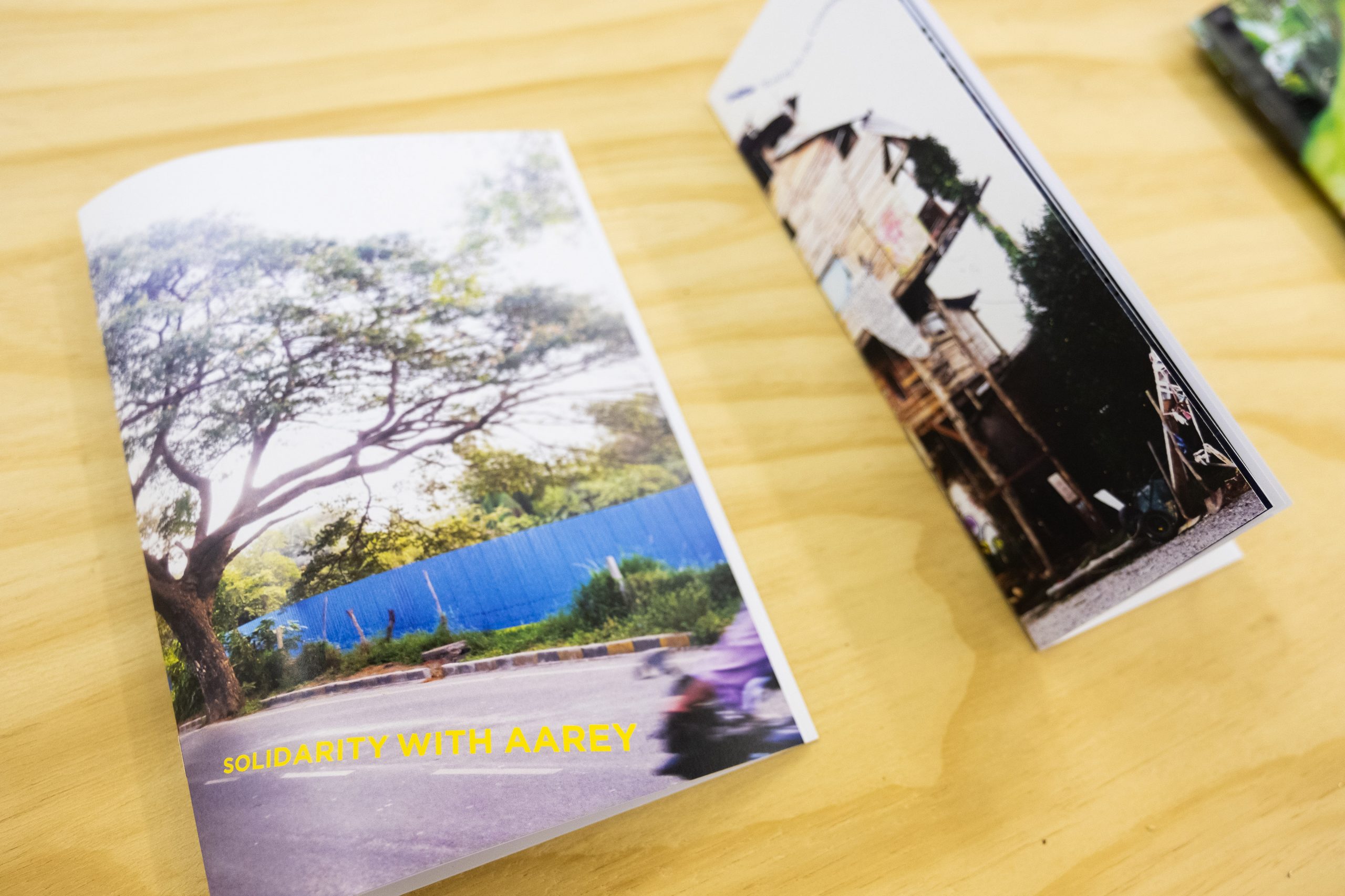
LM: I think my former question also speaks to issues of access and such, which already plague our creative and artistic sectors and industries. Especially given our countries socio-political and economic history. Do you think that this moment could resonate in ways that force institutions, galleries, collectives etc, who are creating, thinking, playing and working within the creative industries to start thinking about these issues- and ways to address them, in less abstract and intellectualised ways and perhaps in more practical ones?
Nare Mokgotho: I think- that the conversation for many artists and art workers has shifted significantly away from questions of visibility and cultural capital to brass and tacks matters, and what this period of financial uncertainty means in very real terms for them. Many in our industry are in the most precarious position they could ever find themselves in. I recently encountered the artist Paul Maheke through a friend and he’s just written a text that everyone should read called The Year I stopped making Art. It addresses the very real threat of the current pandemic, not just to the lives of artists and art workers but to their livelihoods. Forced out of work because of cancellations, lockdowns and self-isolation; people are fighting for their survival in more ways than one. There are solidarity funds that are starting to emerge, but one fears that these might be temporary provisions to mitigate the damage to people’s lives. I think now isn’t the moment to dwell on questions of art and visibility, but [it is] more about developing actual mechanisms of solidarity to help the most vulnerable in our industry in what little ways we can (and hopefully this all adds up). Institutions have to step up and involve themselves in this social solidarity — not just for the most visible — but especially for the most vulnerable.
Molemo Moiloa: Organisations like VANSA have been trying to address this kind of precarity for years – hopefully artists begin to rally more behind these sorts of organisations because there hasn’t been much of a commitment to these issues from artists, to be honest. I am not sure how this change is going to manifest in people’s work and [their] approach to the arts as a whole. One potential thing we might see – though unlikely – is that if the world goes beyond recession and into depression, the kind of market driven aspects that drive the contemporary arts, may be so badly impacted that other kinds of imaginations arise. We may see more space for an art practice that looks to respond to immediate urgencies rather than market forces – which often drive an abstraction and undermine more ‘practical’ approaches as you say. But, that’s probably wishful thinking.
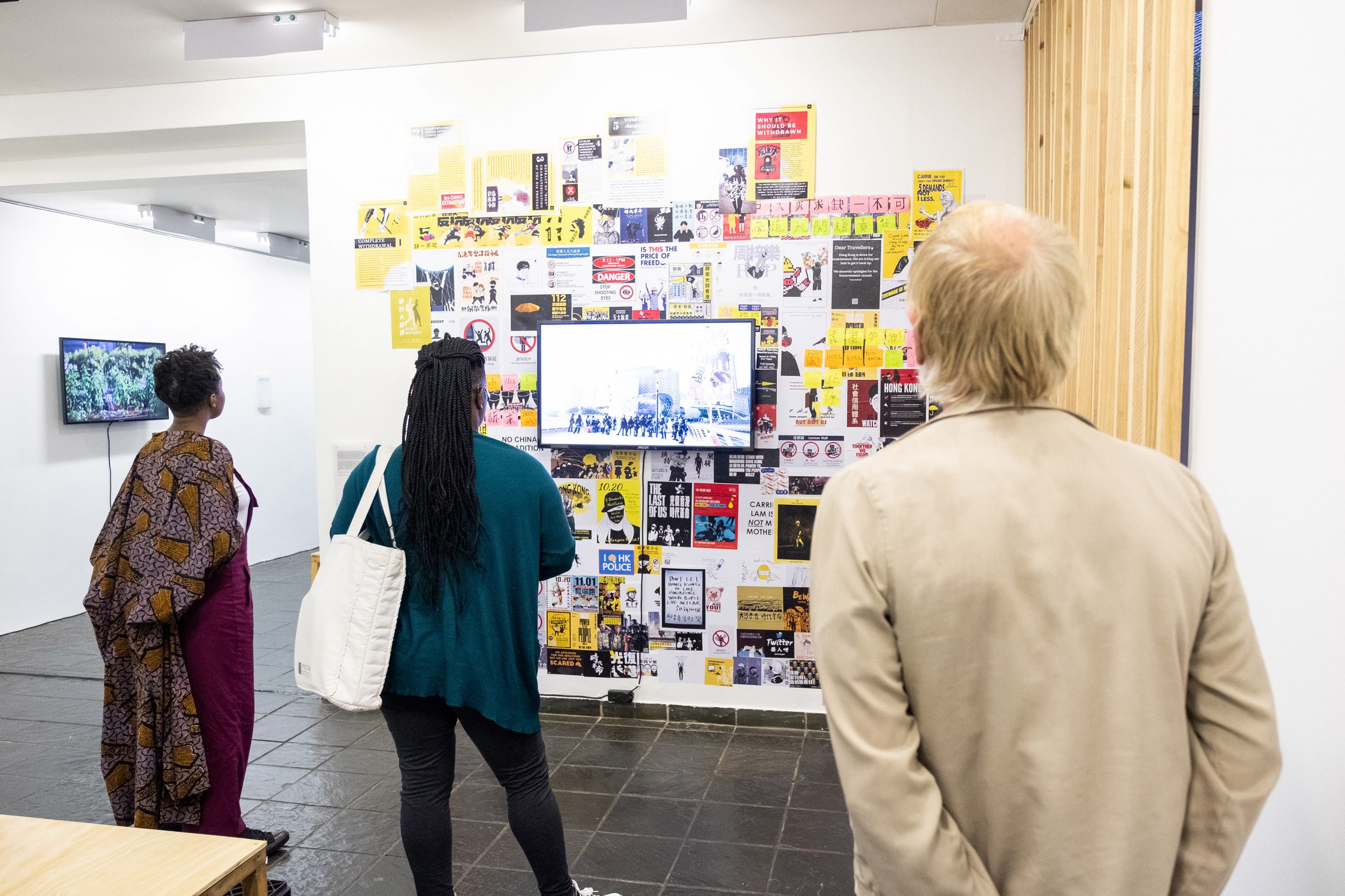
LM: Black feminist, scholars and writers have referenced and spoken about the margin/states of deficit as holding a certain transgressive power and as also being spaces of radical openness and possibility. Moving on now to the moment after this suspension; once the bus has arrived, the virus has been contained and our moments of silence have been observed- what radical possibilities do you think could potentially come out of it? [again, speculation]
Molemo Moiloa: I think this point about marginalisation should mean that as artists, we already have a head start on this new way of being. I think we should be able to not get immediately caught up in the move to go online, we should know – as the many precarious freelancers working in isolation, [that] without organised labour support and from our couches – the new found freedom of working from home and through WhatsApp groups, is not the future we want. We should be able to resist this idea that everyone should be hyper-productive in a time of crisis. We should be able to resist the urge to remain visible, and working and sharing creative work without monetary compensation on so-called “social distancing festivals and galleries”. Because we have always been marginal, we have always been outside or adjacent to the space of the organised office. We have always had to create our own kind of social [systems] – and so we should be able to chart a different kind of option for the future, while everyone else is only just starting to experiment. I’m hoping – for all artists – that as the fear begins to settle, and we start to head inwards, we will be able to see more clearly and start to articulate where we are going so that when this is all over, we emerge into the sunlight with something like a plan.
